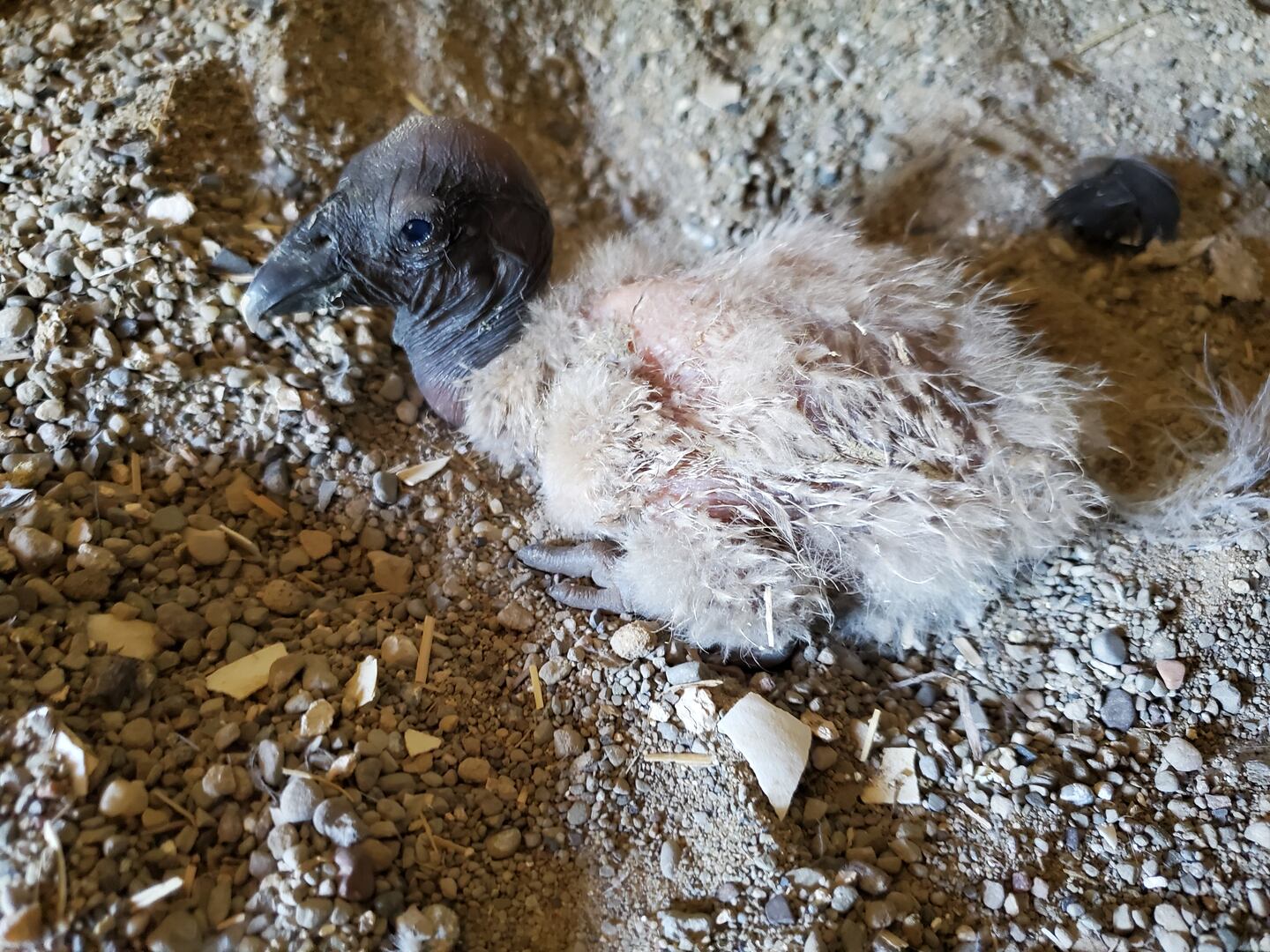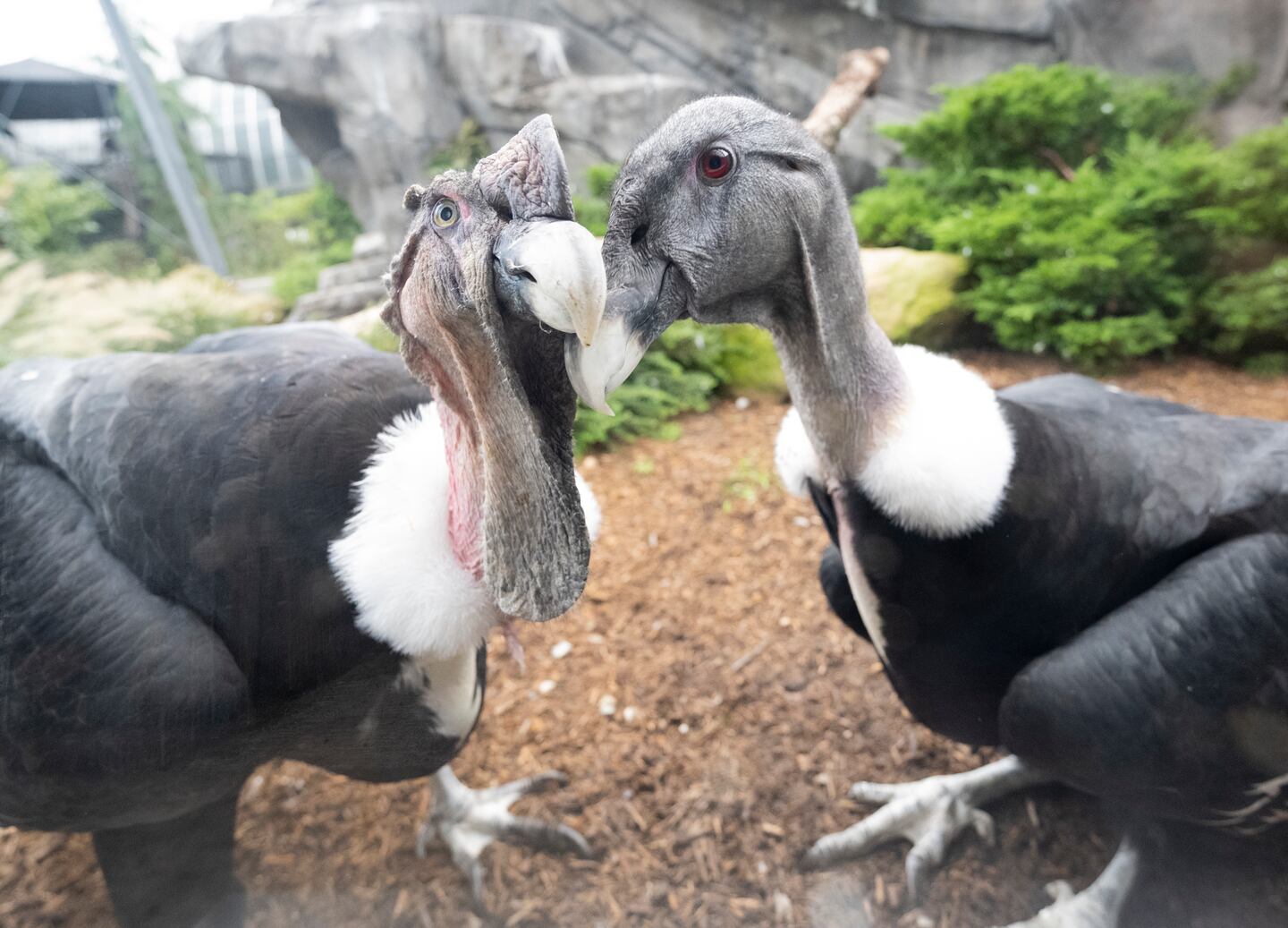PITTSBURGH — An endangered bird has recently hatched at the National Aviary in Pittsburgh.
The National Aviary said that an Andean condor chick hatched on June 7. The Andean condor is considered critically endangered in Ecuador.
The chick is a female bird and is one of three Andean condors to hatch in North American zoos in the past year.
When it first hatched the bird weighed about one-half pound and was about the size of a mango. Over time it will grow to be the size of its parents which are roughly 30 pounds and and have a wingspan of around 10 feet. The bird will reach its full size in around six months.
The bird’s mother is 38-year-old Lianni, who is caring for the baby bird in the habitat’s nesting cave. The habitat includes a pond, natural foliage and a replication of cliff-sides that the birds typically use for nesting in the wild.
“We’re thrilled to be celebrating the arrival of this new condor chick. In 2015, Condor Court was designed with naturalistic cliffs, nesting caves, pools, plants, and access to an indoor area. Every detail encourages natural behaviors and promotes the overall welfare for these very special birds,” says Cheryl Tracy, executive director. “The milestone we are celebrating today – a rare Andean Condor chick – is a testament to this beautiful habitat and to our dedicated team of animal care professionals. We are humbled to be able to contribute to the conservation of this remarkable species, and so hopeful for the bright future of this adorable new chick.”
The National Aviary is partnered with ground crews in Ecuador. The team focuses on providing education on the birds and holding community activities that help support the population of the birds in the wild.
Andean condors can only produce one egg every 12 to 18, months which makes it harder for this team to keep the species alive.
“Chickhood is an incredibly delicate time for young birds, and the first days and weeks are critical. Our team is continually observing the chick and its parents, and all are doing well,” says Dr. Pilar Fish, senior director of zoological advancement and avian medicine at the National Aviary. “Lianni is an excellent and attentive mother. With her care and the support of the experts at the National Aviary, this Andean Condor chick, and the species it represents, has a hopeful future.”
The National Aviary participates in the Species Survival Program for Andean Condors and works with the Association of Zoos and Aquariums to save the species.
TRENDING NOW:
©2022 Cox Media Group








